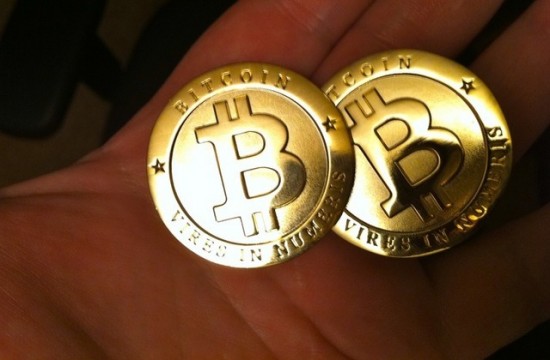The Future of Digital Money
There is currently a divide in the world of digital money. This divide was exemplified by a panel at Monday’s London Web Summit, with two of the panelists (at least to some extent) working alongside credit card companies and two fighting against them. Ben Milne, of real-time virtual money exchange Dwolla, has previously stated that he wants to build ‘the next Visa, not the next PayPal’ and has said that the current system needs to be ‘blown up’. Very Fight Club. John Lunn, director of innovation at PayPal, shares Milne’s desire for a future free from credit cards. However, Lunn stated that he is far from excited by NFC (near field communication) that allows customers to pay for goods using their smartphones in a method closely resembling contactless credit card payments – ‘why do I even need to take my phone out of my pocket?’
Although the idea of a society in which you can ‘check in’ to a store, pick up the items you want and have payment deducted when leaving is an enticing one, it’s also completely unpractical. I recently heard a story about someone who had figured out a way to get the bus for free by pressing an empty card wallet to the Oyster card scanner and playing the beeping noise the scanners make on his smartphone whenever he passes the driver. How long before people figure out a way to bypass the hypothetical scanners at the doors of stores and begin to shoplift right in front of security? My guess? Not long.
Services like Jacob de Geer’s iZettle, hailed by many as ‘the Square of Europe’, work alongside credit companies rather than going against them and it’s worth noting that they’re one of the first of their kind to break the European market. All four panel members acknowledged the difficulty of entering the European market due to strict regulation, and Lunn bemoaned the fact that despite this strict regulation banks have still managed to shift the responsibility for looking after data away from themselves and onto customers. It was at this point that Peter Sunde, of Flattr and The Pirate Bay, mentioned that PayPal owed him £4,000 from a previous dispute…
When the issue of a cash free society was raised, Ben Milne was quick to quip ‘aren’t we already there?’ Of course, this is an overstatement, but it raised a number of interesting points – the panel commented that there would be massive implications (social, political and everything in between) if every transaction was traceable, but something left unspoken was the issue of safety. At present, many credit cards and bank accounts offer fraud protection – if someone steals your card or hacks your account you can call the bank and have the cards cancelled and recoup the money lost if you have insurance or other measures in place to cover it. I can only imagine how difficult it would be to try to insure and recoup anonymous or deregulated forms of money like piles of cash or Bitcoins.
In my opinion, we won’t see mass adoption of any digital payment technique until it has proven that it combines unbeatable security (an invitation to black and white hat hackers alike to hack their system with a cash reward for any who can would be a great way to do this, not to mention being a massive PR stunt) with simple and accessible one-click, or even no-click, technology. Given that society has had thousands of years to perfect an analogue payment technique and still hasn’t managed that, I’m not holding my breath just yet. But then, I can’t help but wonder if that’s the sort of attitude people who insisted on keeping their life savings under their mattress when banks first came into being had…

